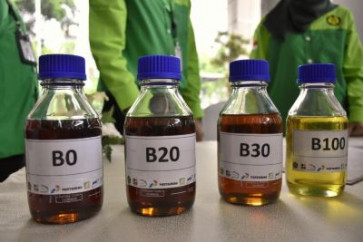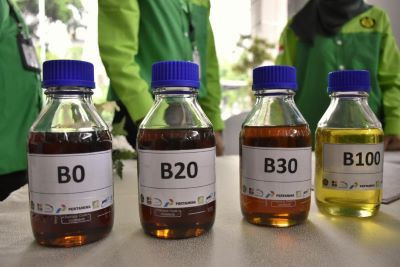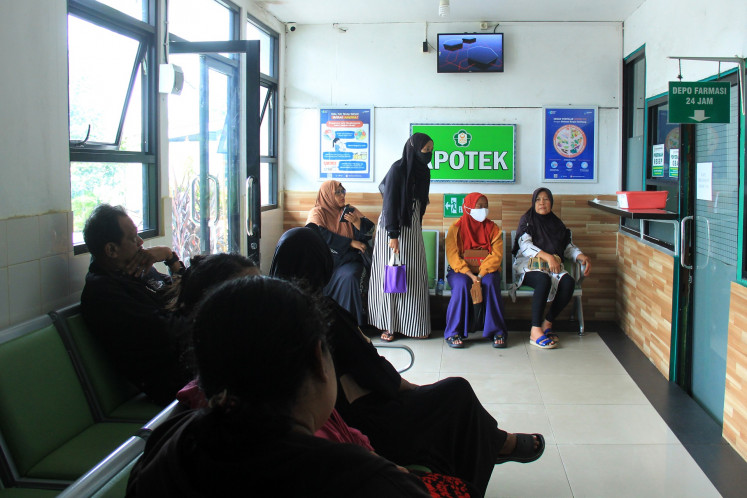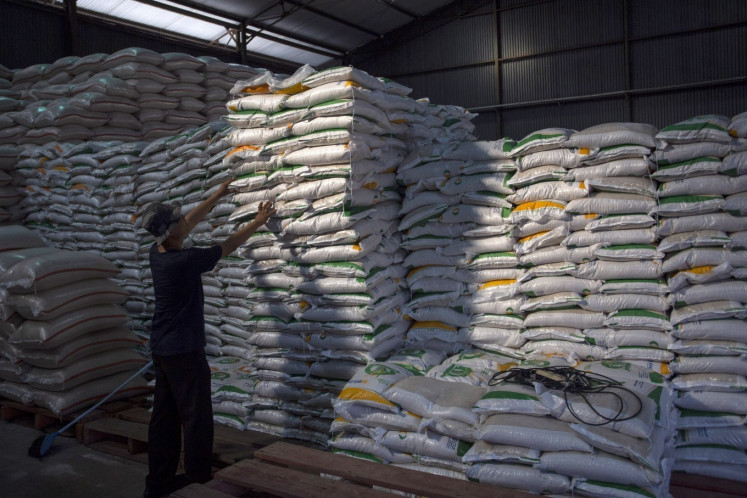Popular Reads
Top Results
Can't find what you're looking for?
View all search resultsPopular Reads
Top Results
Can't find what you're looking for?
View all search resultsBioenergy in Indonesia: Locally owned, locally sourced and locally managed
Heavy reliance on a limited range of feedstocks, such as the overreliance on palm oil, hampers energy independence and fails to tap into the potential of diversified locally available resources.
Change text size
Gift Premium Articles
to Anyone
Bioenergy has emerged as a promising solution for Indonesia's energy and environmental challenges. However, the current state of bioenergy in the country necessitates a paradigm shift to ensure its long-term sustainability.
The key to unlocking the full potential of bioenergy lies in embracing small-scale, locally-owned initiatives. By prioritizing local sourcing and management, Indonesia can foster economic growth, job creation and environmental sustainability.
This article delves into the trends of bioenergy and advocates for a transformative approach that will shape the future of this sector in Indonesia.
The current state of bioenergy in Indonesia primarily focuses on large-scale operations, often at the expense of local communities and the environment. Many bioenergy projects prioritize maximum output and efficiency, resulting in the utilization of extensive land areas. Unfortunately, this approach frequently leads to conflicts with local communities, deforestation and the loss of biodiversity.
Additionally, the heavy reliance on a limited range of feedstocks, such as the overreliance on palm oil, hampers energy independence and fails to tap into the potential of diversified locally available resources. Such unsustainable practices perpetuate a system that prioritizes foreign interests over local development, hindering the true potential of bioenergy in Indonesia.
Furthermore, large-scale bioenergy projects face significant challenges concerning land acquisition, environmental impact and community engagement. The acquisition of vast tracts of land for bioenergy plantations often entails the forced displacement of local communities and disrupts their traditional livelihoods.
The conversion of natural ecosystems for bioenergy production contributes to deforestation and exacerbates climate change, undermining the country's conservation efforts. Moreover, the lack of meaningful community engagement in decision-making processes creates social unrest and jeopardizes the long-term sustainability of bioenergy projects.
to Read Full Story
- Unlimited access to our web and app content
- e-Post daily digital newspaper
- No advertisements, no interruptions
- Privileged access to our events and programs
- Subscription to our newsletters
Purchase access to this article for
We accept



Redirecting you to payment page
Pay per article

Bioenergy in Indonesia: Locally owned, locally sourced and locally managed
Rp 35,000 / article
- Palmerat Barat No. 142-143
- Central Jakarta
- DKI Jakarta
- Indonesia
- 10270
- +6283816779933




Your Opinion Matters
Share your experiences, suggestions, and any issues you've encountered on The Jakarta Post. We're here to listen.
Thank You
Thank you for sharing your thoughts. We appreciate your feedback.
Share options
Quickly share this news with your network—keep everyone informed with just a single click!
Gift Premium Articles
to Anyone
Share the best of The Jakarta Post with friends, family, or colleagues. As a subscriber, you can gift 3 to 5 articles each month that anyone can read—no subscription needed!
Continue in the app
Get the best experience—faster access, exclusive features, and a seamless way to stay updated.










